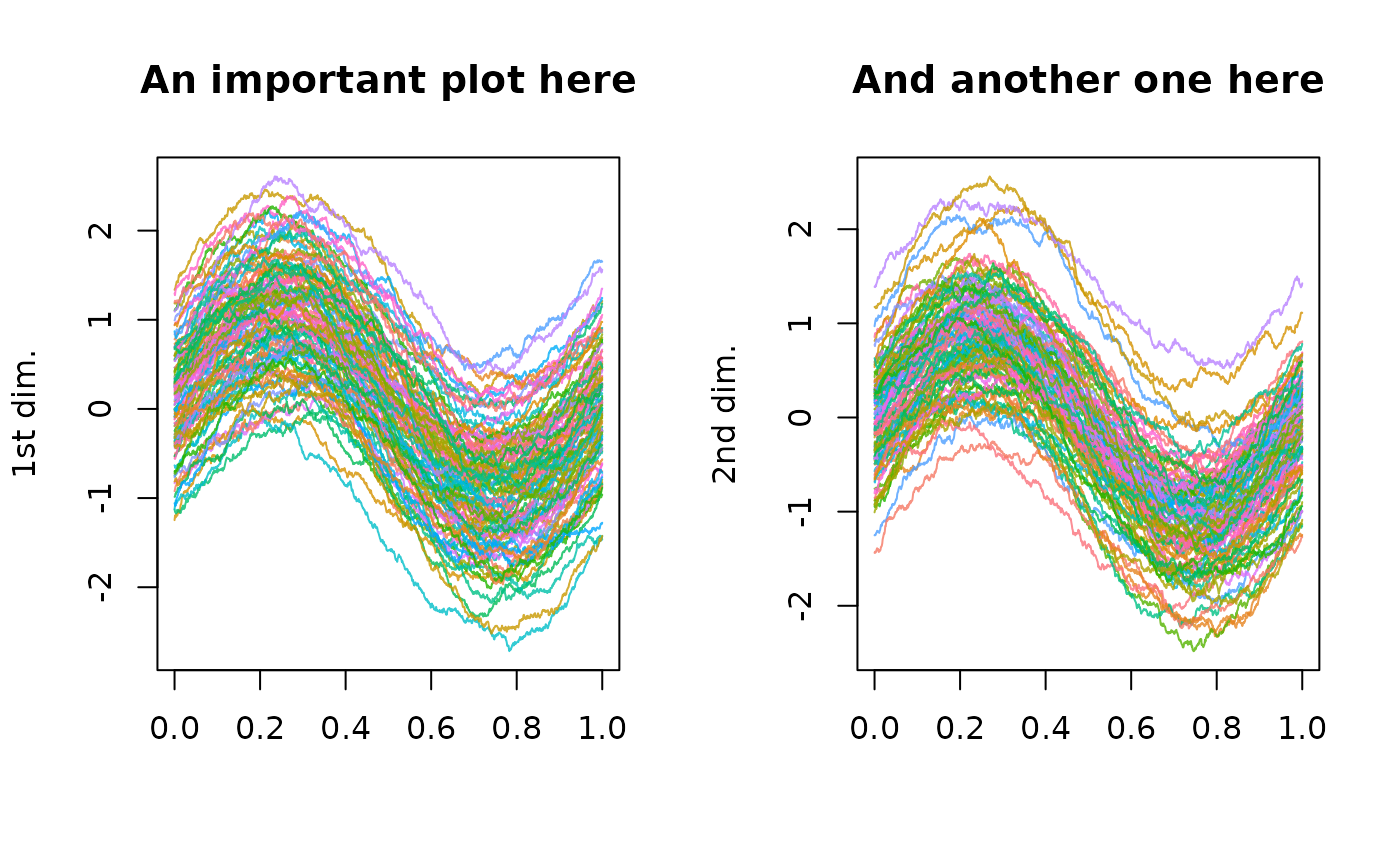This function performs the plot of a functional multivariate dataset stored
in an object of class mfData. It is able to accept all the usual
customizable graphical parameters, otherwise it will use the default ones.
# S3 method for mfData
plot(x, ...)Arguments
- x
the multivariate functional dataset in form of
mfDataobject.- ...
additional graphical parameters to be used in plotting functions (see
Detailsfor the use ofylabandmain).
Details
The current active graphical device is split into a number of sub-figures,
each one meant to contain the plot of the corresponding dimension of the
mfData object. In particular, they are arranged in a rectangular
lattice with a number of rows equal to \( \lfloor \sqrt{ L } \rfloor \)
and a number of columns equal to \( \lceil L / \lfloor \sqrt{L} \rfloor
\rceil \).
A special use of the graphical parameters allows to set up y-labels and
titles for all the sub-figures in the graphical window. In particular,
parameters ylab and main can take as argument either a single
string, that are repeatedly used for all the sub-graphics, or a list of
different strings (one for each of the L dimensions) that have to be
used in the corresponding graphic.
See also
Examples
N = 1e2
P = 1e3
t0 = 0
t1 = 1
# Defining the measurement grid
grid = seq( t0, t1, length.out = P )
# Generating an exponential covariance matrix to be used in the simulation of
# the functional datasets (see the related help for details)
C = exp_cov_function( grid, alpha = 0.3, beta = 0.4 )
# Simulating the measurements of two univariate functional datasets with
# required center and covariance function
Data_1 = generate_gauss_fdata( N, centerline = sin( 2 * pi * grid ), Cov = C )
Data_2 = generate_gauss_fdata( N, centerline = sin( 2 * pi * grid ), Cov = C )
# Building the mfData object and plotting tt
plot( mfData( grid, list( Data_1, Data_2 ) ),
xlab = 'time', ylab = list( '1st dim.', '2nd dim.' ),
main = list( 'An important plot here', 'And another one here' ) )
